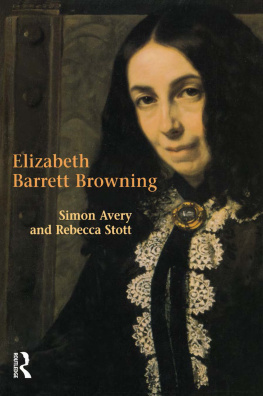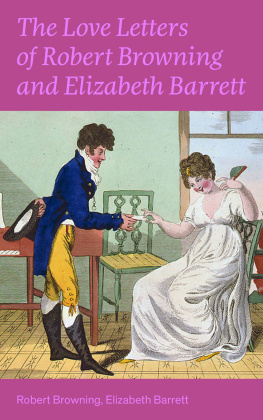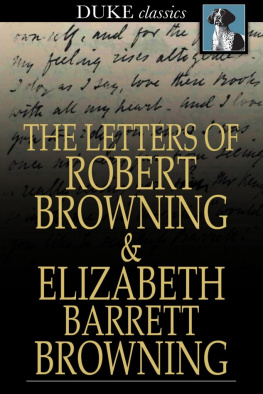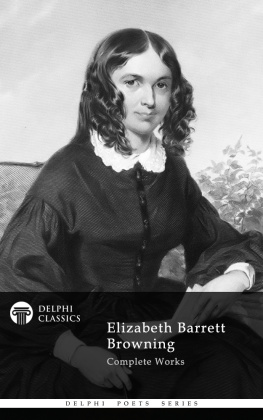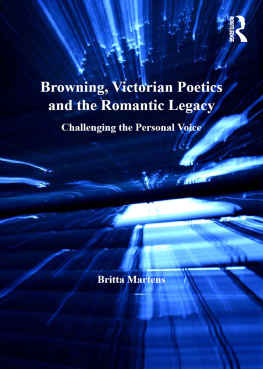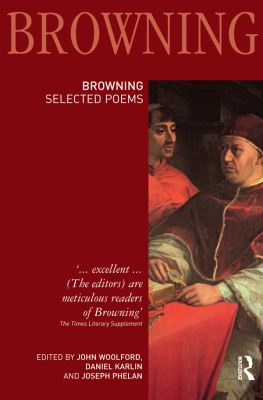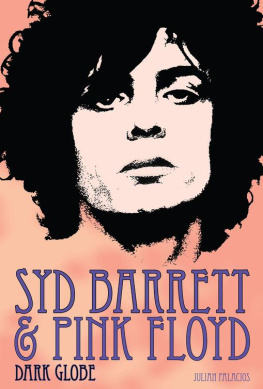Fresh
Strange
Music

Fresh
Strange
Music
Elizabeth Barrett Brownings Language
DONALD S. HAIR

McGill-Queens University Press 2015
ISBN 978-0-7735-4593-9 (cloth)
ISBN 978-0-7735-9766-2 (ePDF)
ISBN 978-0-7735-9767-9 (ePUB)
Legal deposit third quarter 2015
Bibliothque nationale du Qubec
Printed in Canada on acid-free paper that is 100% ancient forest free (100% post-consumer recycled), processed chlorine free
This book has been published with the help of a grant from the Canadian Federation for the Humanities and Social Sciences, through the Awards to Scholarly Publications Program, using funds provided by the Social Sciences and Humanities Research Council of Canada.
McGill-Queens University Press acknowledges the support of the Canada Council for the Arts for our publishing program. We also acknowledge the financial support of the Government of Canada through the Canada Book Fund for our publishing activities.
Library and Archives Canada Cataloguing in Publication
Hair, Donald S., 1937, author
Fresh strange music : Elizabeth Barrett Brownings language / Donald S. Hair.
Includes bibliographical references and index.
Issued in print and electronic formats.
ISBN 978-0-7735-4593-9 (bound).ISBN 978-0-7735-9766-2 (PDF).
ISBN 978-0-7735-9767-9 (ePUB)
1. Browning, Elizabeth Barrett, 18061861 Versification.
2. Browning, Elizabeth Barrett, 18061861 Technique. 3. Browning, Elizabeth Barrett, 18061861 Literary style. I. Title.
PR4198.H33 2015 821'.8 C2015-902342-4
C2015-902343-2
CONTENTS
ACKNOWLEDGMENTS
Everyone who writes about Elizabeth Barrett Browning must be profoundly grateful to the scholars who have provided authoritative editions of her poems and letters. Her letters, which are an indispensable context for her poetry, first began to appear thirty years ago in the initial volume of The Brownings Correspondence, edited by Philip Kelley and Ronald Hudson. Kelleys archival and editorial work, and that of Hudson, set the standard for that collection, now comprising twenty volumes and counting, and involving scholars who have collaborated with Kelley or have carried on his fine work: Scott Lewis, Edward Hagan, and most recently Joseph Phelan and Rhian Williams. As for the poetry, critics like myself had to rely for many years on the 1900 edition of the Complete Works, edited by Charlotte Porter and Helen A. Clarke, until Margaret Reynolds fine edition of Aurora Leigh appeared in 1992. In the first decade of the twenty-first century, a team of scholars prepared an authoritative edition of the Works, which appeared in 2010. My profound gratitude to Marjorie Stone, Beverly Taylor, Sandra Donaldson, and Rita Patteson, the volume editors; and to associate editors Simon Avery, Cynthia Burgess, Clara Drummond, and Barbara Neri.
Initial research for this book was carried out in the British Library, but most of the subsequent work was done in the Armstrong Browning Library at Baylor University, Texas. I am grateful to Rita Patteson, the librarys director, and especially to Cynthia Burgess, the curator of books and printed material, for matching the librarys resources with my scholarly interests. My own university, Western, has since my retirement generously provided me with library study space for both research and writing.
Wellesley College Library, Special Collections, has given me permission to quote from EBBs handwritten notes titled a Short Analysis of Lockes Essay on the Human Understanding, and I am grateful to Mariana Oller, associate curator, for providing me with a photocopy of that manuscript.
The rhythmic turbulence / Of blood that richly suggestive line from Aurora Leigh finds remarkable corroboration in the scientific observations of my long-time friend, Dr Gavin Hamilton, who is a radiologist. Transition to turbulence is a phenomenon in fluid dynamics in which Dr Hamilton has had a lifelong interest, and about which he has written extensively. In observing the phenomenon in the arteries and veins of his patients, he found, not the expected chaotic flow of the fast-moving blood, but a beautiful simple harmonic stationary wave pattern, rhythmic turbulence created by sound waves. EBB would, I think, have been fascinated with scientific proof of a phenomenon she only intuited.
Thanks to my colleague Stephen Adams for our talks about Swedenborg and responses to him by an astonishing number of writers and poets, including EBB.
I am deeply grateful to the two anonymous readers for McGill-Queens University Press for entering into a complex argument with such insight and understanding, and for providing perspectives on it and its presentation that my closeness to the materials when I was writing had blurred or obscured. Their suggestions have greatly improved the arrangement of the argument and its critical context. I am particularly grateful to the reader who provided unusually detailed notes on the manuscript; they were like a critical voice at my ear at every turn when I was revising. That same reader suggested my title: I needed a phrase that would focus attention on the main subject of this book, and RBs (which I had forgotten about) is perfect.
Mark Abley, my editor at McGill-Queens, has taken charge of the manuscript from the very beginning of our relationship. His guidance of it through the evaluation process has been both wise and astute, and his advice has been crucial in my revisions, especially of the introduction. I am deeply grateful to him for his editorial and scholarly expertise.
It has been a pleasure working with the presss production and marketing team, especially my eagle-eyed copy editor, Kate Baltais, and the managing editor, Ryan Van Huijstee.
AUTHORS NOTE
Everyone who writes about Elizabeth Barrett Browning faces the problem of naming her. Her full name before her marriage Elizabeth Barrett Moulton-Barrett and her full name after marriage Elizabeth Barrett Browning are simply too unwieldy to be repeated as often as a text like the present one requires. Elizabeth she rarely used for herself, and the name she and her family (and afterwards her husband) did use Ba is too familiar. She signed her early letters EBB, and she continued to use her initials in her correspondence in the 1830s and 1840s. When her marriage to Robert Browning was becoming a reality, her suitor reminded her that her initials would not change with their union. Marjorie Stone comments that for a woman who had long signed her manuscripts EBB, this continuity must have seemed propitious! (Davies and Stone 152). So I have used EBB throughout this study, for (in Lockes words) quickness and dispatch sake, and (I infer) with the authority of the poet herself.
Fresh
Strange
Music
INTRODUCTION
My title is from Robert Browning. In the very first letter he wrote to Elizabeth Barrett the famous letter in which the impulsive young poet not only asserted that I love your verses with all my heart but also I love you too (BC 10: 17) RB named four excellences of EBBs poetry. The first is its fresh strange music. It is unlikely that RB, who was, by this time (January 1845), a poet who had thought deeply about his art, is using the word music in its popular and sentimental sense, as anything that sounds nice and evokes tender feelings. Eight months before he wrote this letter, RB had sent two poems The Laboratory (Ancien Rgime) and Claret and Tokay to the editor of
Next page


